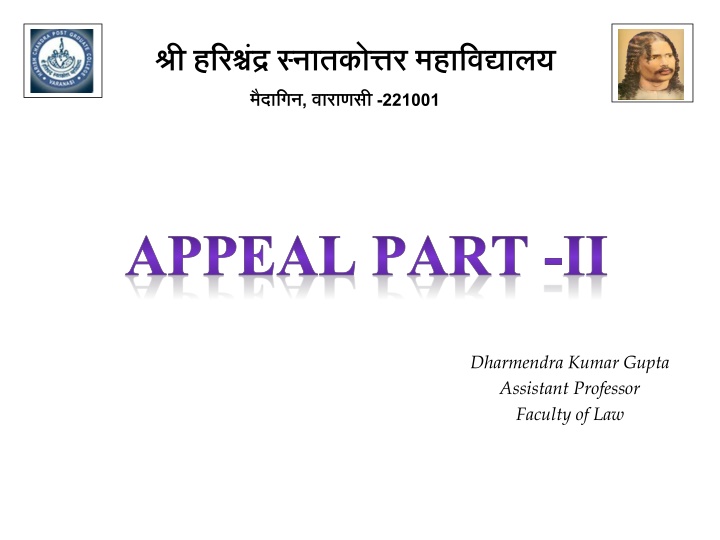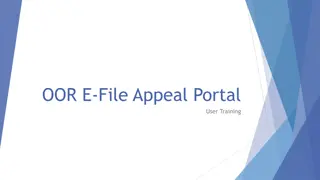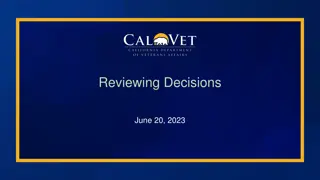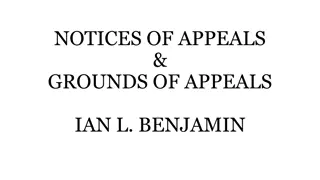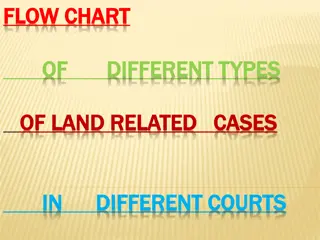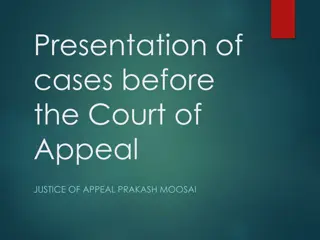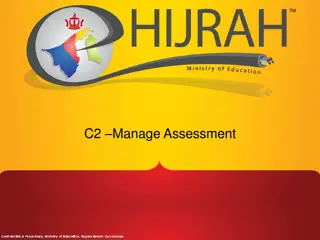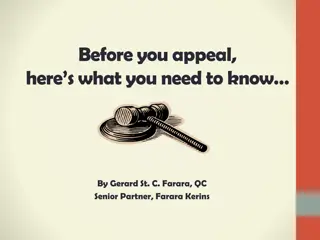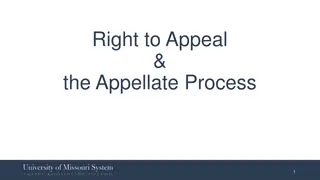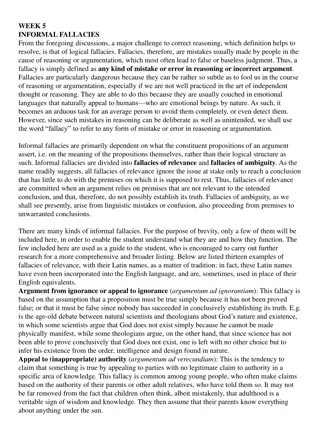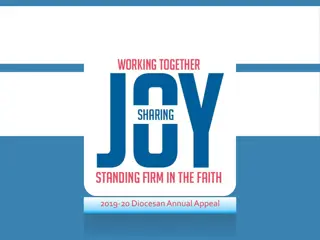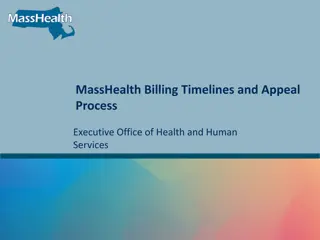Remedies in Legal Appeals: Understanding the Process
The appeal process in legal matters, including remedies for aggrieved parties, steps in appeal proceedings, and requirements for filing an appeal. Learn about when appeals lie, grounds of objection, depositing disputed amounts, and the importance of a correctly drawn memorandum of appeal.
Download Presentation

Please find below an Image/Link to download the presentation.
The content on the website is provided AS IS for your information and personal use only. It may not be sold, licensed, or shared on other websites without obtaining consent from the author.If you encounter any issues during the download, it is possible that the publisher has removed the file from their server.
You are allowed to download the files provided on this website for personal or commercial use, subject to the condition that they are used lawfully. All files are the property of their respective owners.
The content on the website is provided AS IS for your information and personal use only. It may not be sold, licensed, or shared on other websites without obtaining consent from the author.
E N D
Presentation Transcript
, -221001 APPEAL PART -II Dharmendra Kumar Gupta Assistant Professor Faculty of Law
Remedies to a person aggrieved by any decree or order passed by Court Appeal Reference Review Revision Second Appeal S.100-103,107,108 O.42 Appeal by Indigent Person O.44 Appeal to Supreme Court S.109,112, O.45 The Constitution First Appeal S.96-99A and O.41 Apple from Orders S.104-108 and O.43
First Appeal or Appeal from original decree- when lies? Save where otherwise expressly provided in the body of this Code or by any other law for the time being in force, an appeal shall lie from every decree passed by any Court exercising original jurisdiction the Court authorized to hear appeals from the decisions of such Court. An appeal may lie from an original decree passed ex parte.
When not lies? No appeal shall lie from a decree passed by the Court with the consent of parties. No appeal shall lie, except on a question of law, from a decree in any suit of the nature cognizable by Courts of Small Cause, when the amount or value of the subject-matter of the original suit does not exceed ten thousand rupees. No Appeal to dispute the correctness of preliminary where no appeal from preliminary decree.
Steps in Appeal Proceeding Memorandum of appeal Rule 1- 4 registration of memorandum and costs Rule 9-10 Rule 11 and 19 Rule 12 summary dismissal or fixation of day for hearing Rule 14 Notice of hearing Rule 16 Hearing of Appeal Rule 16 and 20 Rule 17 and 19 Rule 17 and 21 adjourn or dismiss in default or ex parte order Rule 24 Rule 27-29 steps on sufficient evidence or steps when no sufficient evidence or refer / remand to original court Refer-R.25-26A Remand-23-23A,26A Rule 30-37 Judgment and decree
Memorandum of Appeal Every appeal shall be preferred in the form of a memorandum signed by the appellant or his pleader. The memorandum shall be accompanied by a copy of the Judgment. The memorandum shall state the grounds of objection to the decree without any argument or narrative. In case of delay in appeal- sufficient cause for such delay. One of several plaintiffs or defendants may obtain reversal of whole decree where it proceeds on ground common to all. In case appeal is against a decree for payment of money, the appellant shall, deposit the amount disputed in the appeal or furnish security in respect thereof. If the memorandum of appeal is not drawn according to above rules, it may be rejected with reason, or be returned for amendment. Such amended memorandum shall be signed by the judge or other officer in this behalf.
Registration of Memorandum and Costs The Court from whose decree an appeal lies shall entertain the memorandum of appeal and shall endorse thereon the date of presentation and shall register the appeal in a book of appeal kept for that purpose. Appellate Court may require appellant to furnish security for costs. Provided where appellant resides out of India-Court shall demand such security. Where such security is not furnished within such time as the Court orders, the Court shall reject the appeal.
Summary Dismissal The appellate Court after fixing a day for hearing the appellant or his pleader and hearing him accordingly if he appears on that day may dismiss the appeal. Such Appellate Court, not being the High Court, shall deliver a judgment. If on the day fixed or any other day to which the hearing may be adjourned the appellant does not appear when the appeal is called on for hearing, the Court may make an order that the appeal be dismissed. The dismissal of an appeal under this rule shall be notified to the Court from whose decree the appeal is preferred. [Rule 11] Appellant may apply to the Appellate Court for the re-admission of the appeal. [Rule19] Every appeal shall be heard under rule 11 as expeditiously as possible and endeavor shall be made to conclude such hearing within sixty days from the date on which the memorandum of appeal is filed.
Fixation of day for Hearing If Appellate Court dismisses the appeal under rule 11, it shall fix a day for hearing the appeal. [Rule 12] Notice of the day fixed under rule 12 shall be affixed in the Appellate Court-house, and a like notice shall be sent by the Appellate Court to the Court from whose decree the appeal is preferred, and shall be served on the respondent or on his pleader. Such notice shall be accompanied by a copy of the memorandum of appeal.
Procedure on hearing On the day fixed, or on any other day to which the hearing may be adjourned, the appellant shall be heard in support of the appeal. The appellant shall not, except by leave of the Court, urge or be heard in support of any ground of objection not set forth in the memorandum of appeal. The Court shall then, if it does not dismiss the appeal at once, hear the respondent against the appeal, and in such case the appellant shall be entitled to reply. Respondent may object to decree as if he had preferred separate appeal. This is called cross-objection. For this purpose he may apply in court within one month or within such further period as court may fix for that purpose. [Rule 22]
Dismissal of Appeal for Appellant s Default Where on the day fixed, or on any other day to which the hearing may be adjourned, the appellant does not appear when the appeal is called on for hearing, the Court may make an order that the appeal be dismissed. This is not dismissal of appeal on the merits. the appellant may apply to the Appellate Court for the re-admission of the appeal. [Rule 19].
Ex parte Order Where the appellant appears and the respondent does not appear, the appeal shall be heard ex parte. Where an appeal is heard ex parte and judgment is pronounced against the respondent, he may apply to the Appellate Court to re-hear the appeal: and, if he satisfies the Court that the notice was not duly served or that he was prevented by sufficient cause from appearing when the appeal was called on for hearing, the Court shall re- hear the appeal on such terms as to costs or otherwise as it thinks fit to impose upon him.
